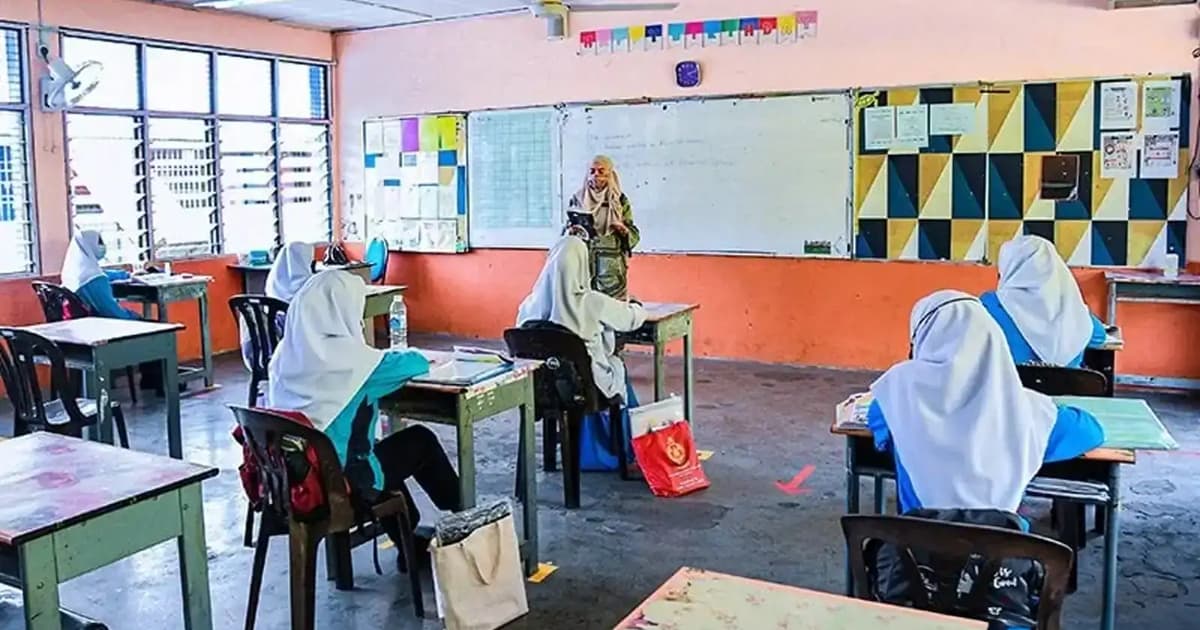
A teachers’ group has urged the education ministry to conduct a comprehensive audit of the current number of educators before implementing the nationwide “co-teaching” method in the 2027 academic session.
West Malaysia Malay Teachers Union (KGMMB) president Sobri Yusuf said this would ensure that the policy, which places two teachers in one classroom, does not negatively affect schools already facing a shortage of educators.
He said the deployment of teachers must be planned strategically so that the co-teaching approach does not increase the burden on existing teachers, especially in rural areas and high-density schools.
“KGMMB recommends that the ministry carry out an audit of the total number of teachers, including recruitment and attrition rates such as retirements or resignations, to ensure that the implementation of this policy runs smoothly on the ground,” he told FMT.
Berita Harian yesterday reported education minister Fadhlina Sidek as saying that the ministry would introduce the co-teaching approach as one of several new methods to be implemented in the 2027 school curriculum.
Fadhlina said the nationwide rollout aimed to strike a balance between academic achievement and students’ character development.
She added that the co-teaching method was designed to make the teaching and learning (PdP) process more engaging and effective by giving teachers the space to be more creative and interactive.
Sobri said that while the union welcomed the initiative to enhance the effectiveness of PdP, the overall readiness of teachers in schools still required significant improvement.
He said teachers must be given a deeper understanding of collaborative pedagogy, shared classroom management, and team-teaching techniques to avoid confusion over roles between the two teachers assigned to the same class.
“The professional training offered by the ministry is a good start, but its duration and intensity should be strengthened to ensure that teachers are adequately prepared, both theoretically and practically,” he said.
He said that a key challenge in implementing co-teaching was the division of responsibilities between two teachers, as differing teaching styles and levels of experience could undermine consistency in classroom delivery.
He also noted that time constraints for joint lesson planning could pose problems, as teachers’ schedules are already packed with curricular and administrative duties.
“Although co-teaching has the potential to improve PdP effectiveness through diverse approaches and more focused attention on students, teachers’ workload will inevitably increase in terms of coordination, lesson planning, and student assessment,” he said.
From the students’ perspective, he agreed that the approach could boost classroom engagement and strengthen academic monitoring, but said its effectiveness should be continuously evaluated through impact studies and feedback from both teachers and students.
“KGMMB calls for the implementation of co-teaching to be gradual and inclusive, taking into account the voices of teachers on the ground.
“The union remains committed to working with the education ministry to ensure that this education reform succeeds and benefits all parties,” he said.
In August, deputy education minister Wong Kah Woh revealed that 2,397 teachers had opted for early retirement as of May this year, compared to 5,082 last year, 6,394 in 2023, and 5,306 in 2022.
“Between 2022 and 2024, an average of 5,594 teachers chose early retirement each year,” he said.
Of that number, the ministry’s data showed that 67.44% retired early due to a lack of interest in the profession, followed by family issues (17.43%) and health reasons (7.69%).






